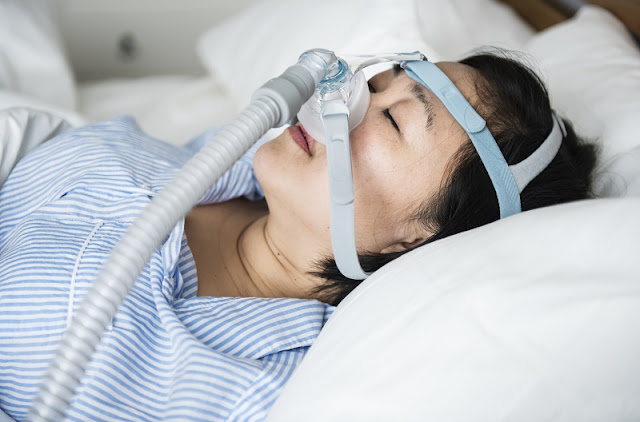Sleep apnea is a serious sleep disorder that affects millions of people worldwide. It is characterized by repeated pauses in breathing during sleep, which can lead to several health problems, including daytime fatigue, high blood pressure, and heart disease. If you or someone you know has been diagnosed with sleep apnea, it is important to understand the treatment options available. Learn more about sleep apnoea treatment.
There are several types of sleep apnea, the most common of which is Obstructive Sleep Apnea (OSA), caused by a physical airway blockage. Central Sleep Apnea (CSA) is caused by a problem with the brain signaling the muscles that control breathing, and Complex Sleep Apnea Syndrome (CompSAS) is a combination of both OSA and CSA. Know more about sleep apnoea treatment.
Key Factors Responsible For Sleep Apnoea :
If you are unaware of sleep apnea, then you must make a note of the following symptoms. If you have recently started to have these symptoms, you must consider seeking a doctor's advice:
- Regular and frequent snoring
- Choking or snorting sound
- Lapse in breathing
- Frequent need for urination
- Headaches and sore throat in the morning
- Excessive sleepiness during the daytime
There are different methods of treating sleep apnea. Your doctor would recommend the right course of action. The following section takes you through some of the ways of overcoming sleep apnoea.
Non-Invasive Treatments
One of the first lines of treatment for sleep apnea is a non-invasive treatment. These treatments can be used alone or in combination with other treatments to help manage sleep apnea symptoms.
Lifestyle changes: Making lifestyle changes can also help in reducing the problem of sleep apnoea. Weight loss is one of the most effective ways to reduce the severity of OSA. Additionally, quitting smoking, reducing stress, and avoiding sleeping on your back can be helpful.
Continuous Positive Airway Pressure (CPAP): CPAP is a non-invasive treatment that uses a mask and machine to deliver a steady stream of air pressure to keep the airway open during sleep. This is the most widely used and most effective treatment for OSA. However, it can be difficult for some people to adjust to using the device every night.
 |
| Sleep Apnoea Treatment |
Oral appliances: These are custom-made devices worn in the mouth to reposition the jaw and tongue, which can help to keep the airway open during sleep. Oral appliances effectively treat mild to moderate OSA and can be a good alternative for those unable to tolerate CPAP therapy.
Invasive Treatments
In some cases, non-invasive treatments may not effectively treat sleep apnea. In these cases, invasive treatments may be recommended.
Surgery: Surgery can remove excess tissue from the airway, such as the uvula or tonsils, which can help alleviate sleep apnea symptoms. However, surgery is not always effective and can have complications.
Implants: Implants, such as hypoglossal nerve stimulators, can help keep the airway open during sleep. These are relatively new treatments and are still being studied for their effectiveness.
Choosing the Right Treatment
The best treatment for sleep apnea will depend on the severity of the condition and the individual's personal preferences and medical history. It is important to work closely with your healthcare provider to determine the best course of treatment for you.
Living with Sleep Apnea: Tips for Managing Symptoms"
Living with sleep apnea can be challenging, but there are steps you can take to manage your symptoms and improve your quality of life. Here are a few tips to help you cope:
Stick to your treatment plan: Following the treatment prescribed by your doctor is important. This may include making lifestyle changes and the use of CPAP therapy or oral appliances.
Maintain a healthy lifestyle: Losing weight, eating a healthy diet, and exercising regularly can help to reduce symptoms of sleep apnea. Quitting smoking and reducing alcohol consumption can also be beneficial.
Create a sleep-conducive environment: Creating a comfortable and quiet sleeping environment can help to promote better sleep. This includes keeping the bedroom cool and dark and using comfortable bedding.
Practice good sleep hygiene: Establishing a consistent sleep schedule, avoiding caffeine and heavy meals close to bedtime, and winding down before bed can all help to improve the quality of your sleep.
Conclusion
In conclusion, sleep apnea is a serious disorder that can significantly impact an individual's health and well-being. It is important to understand the different treatment options available and work closely with a healthcare provider to determine the best treatment for you. Make sure that you seek the right assistance and support in this case.
Comments
Post a Comment